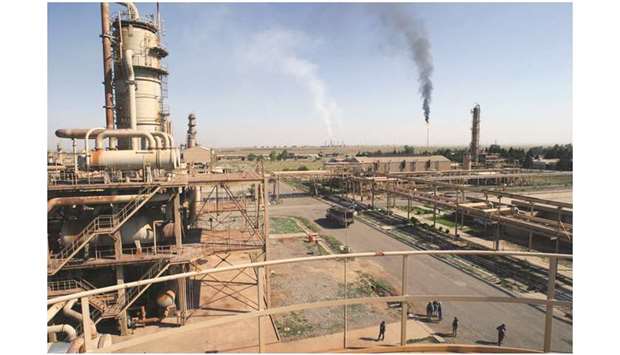The US assassination of one of Iran’s most powerful generals has the oil industry bracing for something it has long feared and anticipated — direct military confrontation between the two adversaries.
In the hours after the killing at Baghdad airport of Qassem Soleimani, crude oil surged, American workers began to withdraw from Iraqi fields and traders scrambled to position themselves for even higher prices. “We should all be bracing for a ferocious response,” said Helima Croft, chief commodities strategist at RBC Capital Markets. “The stage is set for a retaliatory spiral that could keep markets on edge well into 2020.”
Beyond the initial 4.8% surge in New York crude futures to an eight-month high, there were other signals in the market that people were preparing for further disruption.
Volatility rose to its highest level in a month and the cost of derivatives that insure against price spikes increased. Four million barrels of options contracts that would profit from a jump in Brent crude to $95 a barrel traded for both March and September. Two commodity-trading houses called emergency meetings of senior staff on Friday to assess the new risks to the oil market, said people familiar with the matter. Possible retaliation could include targeted strikes on oil facilities in the area, attacks on pipelines or oil flows through the Strait of Hormuz, Citigroup Inc analysts including Ed Morse said in a report.
“We expect retaliation to be in the region, most likely in Iraq,” analysts at ESAI Energy LLC said in a report. “This could have significant impact on crude oil prices.”
Iraq’s oil fields are working normally, the country’s Oil Minister Thamir Ghadhban told Bloomberg by phone on Friday. Four US citizens working at an Exxon Mobil Corp-operated project have been asked to leave, he said.
“We are closely monitoring the situation in Iraq,” ExxonMobil said in an e-mailed statement. The company declined to comment on specific staffing levels, but said it has “programs and measures in place to provide security to protect its people, operations and facilities.”
Italy’s Eni SpA, which operates Iraq’s Zubair field, also said it’s monitoring the situation, while BP Plc and Royal Dutch Shell Plc declined to comment.

The Kirkuk Oil Company refinery that handles some of the oil production in the Kirkuk, northern Iraq region (file). An escalation into direct fighting between US and Iranian forces in the world’s most important oil-producing region would have longer lasting consequences for the global economy.
